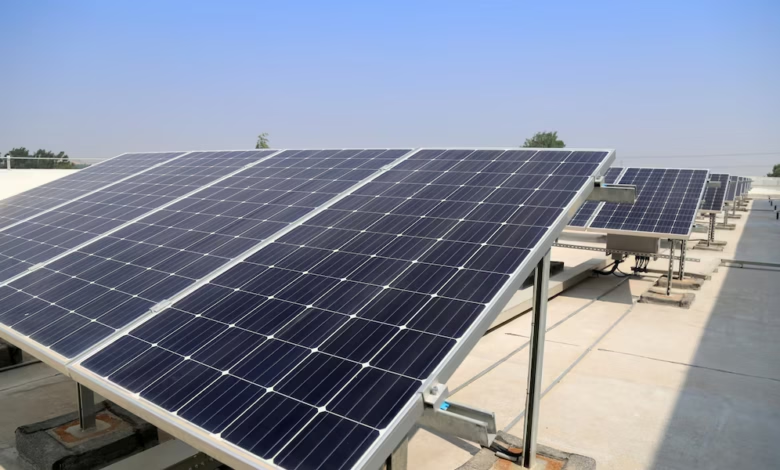
As the world becomes increasingly focused on sustainability, energy efficiency has become an essential consideration for businesses, including in South Africa. Entrepreneurs who neglect energy efficiency risk not only higher operational costs but also potential environmental impact, which could hurt their reputation and compliance with local regulations. However, many South African entrepreneurs still make several common mistakes when it comes to energy efficiency. Understanding these mistakes and how to avoid them can help businesses reduce costs, increase their sustainability, and create a more competitive edge in the market.
1. Ignoring Energy Audits
One of the most significant mistakes South African entrepreneurs make is neglecting to conduct regular energy audits. Energy audits are crucial for understanding how energy is used within a business and identifying areas where savings can be made. Without an audit, it’s difficult to pinpoint inefficiencies in lighting, heating, or equipment that could be wasting energy. Conducting regular audits can uncover hidden inefficiencies and provide actionable recommendations to optimize energy use.
2. Failure to Invest in Energy-Efficient Equipment
Entrepreneurs often stick with outdated, energy-hungry equipment simply because it’s familiar or cheaper upfront. The long-term costs of running inefficient equipment, however, can outweigh the initial savings. By investing in energy-efficient appliances, machinery, and lighting systems, businesses can significantly reduce energy consumption and costs. South Africa has several incentives and programs for businesses that invest in energy-efficient solutions, which should not be overlooked.
3. Neglecting Proper Maintenance of Equipment
Regular maintenance of equipment is essential for ensuring that machines, HVAC systems, and lighting remain energy-efficient. When equipment is poorly maintained, it can consume more energy than necessary. For example, dirty air filters, poorly lubricated machinery, and broken thermostats can all cause equipment to work harder, leading to higher energy usage. Regular maintenance ensures that systems operate at optimal efficiency and can prevent costly repairs or replacements in the future.
4. Lack of Employee Awareness and Training
Energy efficiency should not only be the responsibility of the business owner but also of the employees. A significant mistake entrepreneurs make is failing to train their staff on energy-saving practices. Employees can play a crucial role in reducing energy consumption by turning off lights, using equipment more efficiently, and adhering to energy-saving policies. Entrepreneurs should invest time and resources in educating their workforce on the importance of energy efficiency and providing guidelines for reducing wasteful practices.
5. Ignoring Renewable Energy Options
South Africa is well-positioned to take advantage of renewable energy sources like solar power due to its abundant sunshine. However, many entrepreneurs overlook the potential of incorporating renewable energy solutions into their business operations. Solar energy, in particular, can be a game-changer for South African businesses looking to reduce their reliance on the national grid and lower their energy costs. Ignoring renewable energy options is a missed opportunity to improve energy efficiency while also contributing to environmental sustainability.
6. Not Monitoring Energy Consumption
Another mistake is not closely monitoring energy consumption patterns. Many businesses in South Africa fail to track their energy usage on a regular basis, which makes it difficult to identify spikes in energy consumption or areas where savings can be made. By using energy monitoring tools and smart meters, businesses can track energy consumption in real-time, making it easier to identify inefficiencies and make adjustments as needed. Monitoring energy usage also allows businesses to set goals for reducing consumption and track their progress.
7. Failing to Implement Smart Technology
Smart technology offers a wide range of solutions that can enhance energy efficiency, but many South African businesses are slow to adopt these innovations. Smart thermostats, motion-sensor lighting, and automated energy management systems can help businesses optimize energy usage without requiring manual intervention. These technologies can adjust lighting and temperature based on occupancy, time of day, or usage patterns, ensuring that energy is only used when needed. Not leveraging smart technology means businesses are missing out on opportunities to automate energy-saving processes and reduce costs.
8. Overlooking Insulation and Building Design
A poorly designed building or inadequate insulation can lead to significant energy waste, especially in South Africa’s varying climates. Whether it’s air conditioning in the hot summer months or heating in the cooler winter months, poorly insulated buildings require more energy to maintain a comfortable temperature. Entrepreneurs often overlook the importance of proper insulation, but investing in energy-efficient building materials and improving insulation can reduce the load on heating and cooling systems. This can result in long-term savings on energy bills.
9. Not Taking Advantage of Government Incentives
The South African government offers several incentives to businesses that focus on improving energy efficiency, such as tax rebates, grants, and financing options for renewable energy projects. However, many entrepreneurs fail to take advantage of these opportunities, either due to a lack of awareness or understanding of the process. By researching and applying for government incentives, businesses can offset the initial costs of energy-efficient upgrades and make their energy-saving projects more affordable.
10. Underestimating the Cost of Energy Waste
Many entrepreneurs do not fully appreciate the long-term costs of energy waste. Small inefficiencies—such as leaving lights on in unused rooms, using outdated equipment, or failing to manage heating and cooling effectively—can accumulate over time, leading to significant financial losses. These practices may seem insignificant individually, but the compounded effect can have a substantial impact on a business’s bottom line. Recognizing and addressing these energy-wasting habits is essential for improving overall energy efficiency and reducing operational costs.
Energy efficiency is more than just an environmental concern; it’s a crucial factor in improving the profitability and sustainability of South African businesses. By avoiding these common mistakes, entrepreneurs can optimize their energy usage, reduce costs, and contribute to a more sustainable future. Whether through investing in energy-efficient equipment, embracing renewable energy sources, or implementing smart technologies, there are numerous opportunities for businesses to enhance their energy efficiency. It’s time for South African entrepreneurs to make energy management a priority and start reaping the benefits of a more energy-efficient business model.


